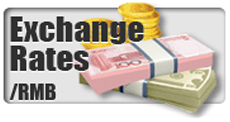
Ferrosilicon prices in North America to go up in H2
----Interview with Barry Lazar
President
MEDIMA LLC
President
MEDIMA LLC
MEDIMA, which was acquired by Traxys in May 2020, is one of the largest ferroalloy suppliers in the North American market. Headquartered in Luxembourg, Traxys is engaged in the sourcing, trading, marketing and distribution of non-ferrous metals, ferro-alloys, minerals, industrial raw materials and energy. Traxys is a physical commodity trader and merchant in the metals and natural resources sectors. Its logistics, marketing, distribution, supply chain management and trading activities are conducted by over 400 employees in over 20 offices worldwide.
Asian Metal: Hello Mr. Lazar, please briefly introduce your company.
Barry Lazar: MEDIMA has been engaged in providing ferroalloys to steel makers and foundries for fifteen years, and it was purchased by Traxys in May last year.


Asian Meal: How do the long-term orders and spot orders approximately account for your business in the North America market?
Barry Lazar: We focus on the North American market. For North America, the majority of contracts usually are annual formula contracts based on changing monthly or quarterly index. For me, the index contracts probably account for as much as 80% of the contracts in our North America market, and spot deals accounts around 20%.
Asian Metal: Are there any changes or differences this year under the consecutively tight supply in the North America for the long-term contracts and spot contracts?
Barry Lazar: In general, the large ferrosilicon producers operating in North America tend to focus on booking index contracts, but this year we did see more fixed-price contracts than we had seen in the past. There has been a definite trend that more and more contracts are being signed with fixed prices. Our suppliers refused to participate in index contracts as they did not view the index as reflective of the market. Moreover, previously most customers purchased on annual index based formula contracts, and this year they are taking more than suppliers expected. More fixed-price contracts were signed with shorter periods due to the short supply and crazily increased ocean freight. For us, at least half of my long-term contracts were signed with a shorter period based on fixed prices. Over time, the index has started to mean less and less as suppliers refused to offer on index. The main index historically CRU used for ferroalloys in the USA began to not reflect the reality on the market. The trend looks to continue.
Asian Metal: How about the steel mills' operation rates in Q2, compared last Q2?
Barry Lazar:It appears that we are emerging from the COVID shutdowns of last year, and business sentiment dramatically improved and the steel prices have aggressively increased as well. According to the related data, the crude steel output in North America reached about 10.1milliont in May 2021, up by 47.7% against last May, leading to the sharp increases in steel manufacturing. Foundries are also very strong, and we see dramatic improvements across both foundry and steel segments.
















